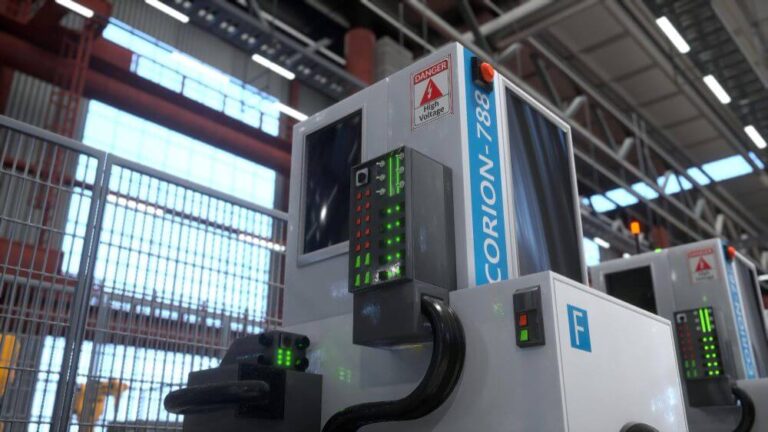Can today’s Industrial Power Systems meet today’s demand for no backup? Manufacturing, logistics, and other high-utilization, large occupants require round-the-clock electricity. In manufacturing and logistics, even a split-second outage could mean an entire production line halting, loss of data, or damage to machinery. Backup systems provide peace of mind, especially when the stakes are high.
Industrial Operations have heavier loads and voltages than small-scale operations; therefore, a simple fix may not necessarily suffice. A reliable energy flow is a requirement, and an intelligent first step is to consider your backup system carefully.
Why Many Industrial Sites Choose UPS Systems
Three phase UPS solutions provide a stronger and more balanced power output, perfect for operations that depend on load sharing and consistent voltage. Unlike single-phase units, they can handle higher electrical demands without fluctuations or strain. For industries where machinery downtime means severe losses, this matters.
Energy flows more efficiently across all phases, minimizing wear and extending equipment life. These systems also reduce the risk of overload in circuits that manage heavy machinery. The result? Fewer breakdowns, less wasted power, and tighter operational control.
Reliable Performance in Difficult Environments
Industrial environments pose significant challenges for sensitive electronics. Dust, temperature variations, and voltage spikes can damage any system. What a well-designed backup system typically does is shield equipment from risks. When installed correctly, a quality power system protects hardware and data systems from the damage caused by a loss of service.
This benefit extends beyond uptime. A quality power source will reduce everyday wear and tear on an asset by preventing brownouts and surges. No one sees this protection that quietly occurs in the background, ensuring smooth operation and longevity of the asset.
A Cost-Saving Choice Over Time
While initial costs for large-scale power backup units can be higher, the return is seen in reliability and reduced downtime. One major failure can cost thousands or even more, depending on the operation. Investing in dependable systems means fewer emergencies, fewer equipment repairs, and less reactive maintenance.
Choosing the right model helps businesses manage utility usage more effectively, too. With improved load distribution, less power is wasted. That means lower bills and more sustainable operations. Those cost savings grow even more when paired with intelligent power management systems.
Other Benefits That Make a Real Difference
- Suitable for powering large-scale machinery and equipment
- Offers smoother voltage flow, reducing the risk of power dips
- Supports longer runtimes compared to smaller alternatives
- Designed for scalability with growing power needs
- Helps balance loads across all three phases, preventing hot spots
- Often built with monitoring tools for early fault detection
- Reduces total energy losses, leading to better efficiency
- Provides peace of mind during storms or grid instability
How to Select the Right Partner for Installation and Support
Selecting the right provider is just as important as choosing the system itself. There are some companies that not only sell you the installation but also help you determine your power needs, layout, and future growth.
Look for providers who have experience in your industry and are capable of supporting and maintaining your system, as well as the tools and systems to monitor these systems and adapt them to your layout. The best companies know that three phase UPS units go beyond technology: they provide your business the ability to carry on business in adverse weather conditions.
For industrial operations where downtime is not an option, the value of a reliable and viable power backup system is the necessary expenditure. Regardless of whether you are talking about improving your load distribution, waste reduction, or protecting against unexpected shutdowns, the value of this method is obvious. The proper setup will keep your processes stable and energy flow reasonable in unpredictable conditions. A long-term power solution is not just an upgrade; it is a power decision that will protect your balance sheet.


